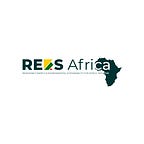Solid Waste Management in Nigeria
by Oluwafemi Salako
I have spent most of the last ten years in Ibadan, the largest city in Nigeria. And a critical eyesore whenever I navigate the city is the perennial presence of wastes along major roads. In Lagos, the economic capital of the country, with over 20 million inhabitants, the issue of proper waste management is even a more intense challenge.
But how did we get here?
Waste Generation
Nigeria is the most populous African country, with an estimated population of over 200 million people. This supposed strength in number, however, has resulted in a plethora of problems, one of which is solid waste management.
For instance, Lagos alone generates above 13000 tons daily while estimated at 0.65kg per capita waste. Nigeria produces well over 42 million tons of solid waste annually with a range of 0.65–0.95 capita/kg/day across the nation. This accounts for more than half of the waste generated in Sub Sahara Africa annually.
However, only between 20–30% of this waste is collected. Little wonder a light downpour of rain leads to massive flooding of streets with the few available drainages blocked since they’ve become getaways for wastes produced.
Waste Management
Each state of the federation has its own Waste Management Agency (WMA) saddled with the responsibility of the collection and proper disposal of wastes. As we’ve noticed, Nigeria’s problem is not in the absence of the right legal framework or enaction of regulations to back up or institute a particular process. The problem is more rooted in making the rules come alive and the implementation of existing regulations.
What Are the Challenges of Waste Management?
The major challenge of proper solid waste management is inadequate service coverage. And that’s because most of the towns and villages do not have access to waste management bodies. Even if the citizens are ready to dispose of their wastes, there is no collector available to take them.
The activities of waste management agencies are most times limited to the capital cities of each state. This leads most citizens to the practice of open burning of wastes.
Operational inefficiencies of the collectors have also been a bane to proper waste management in the country. The waste eyesore of Ibadan earlier mentioned cuts across the city. The designated collection points often overflow with wastes. The wastes are left uncollected for days, thereby discouraging inhabitants from filling the containers with waste.
Also, the allocated landfills have become incineration centers for the practice of open burning. And some citizens lack awareness about proper handling and disposal of wastes.
Another major challenge of waste management is the limited utilization of recycling activities. Lagos State, which generates well over 13000 tons of wastes daily, only recycles about 10% of the generated wastes. Other states have even lower percentages. A proportion of the rural population has cultural practices of having an open dumpsite the village utilizes for a clean and safe environment. However, densely populated cities do not have this luxury.
The rapid population explosion in Lagos state has led to the proliferation of slums where wastes and humans alike struggle for the right of passage on streets. This unplanned development has caused a strain on effective waste management.
Solutions
There should be strict implementation of enacted regulations and defaulters of these laws justly dealt with. There are numerous laws to ensure proper waste management in Nigeria, but their implementation has been the undoing.
The unenlightened populace also needs to be made aware of the pros of proper and effective waste management. They need to know the disaster that may ensue from improper waste disposal. And this can best be exemplified by the consistent flooding, which occurs yearly due to blocked drainage and a littered environment.
Adequate funding of waste management agencies and government backing of NGOs that work in the environment sector as well as technological investment is of paramount importance.
The citizens should be enlightened also on the three-Rs of waste management, which means Reduce, Reuse, and Recycle. When appropriately applied, these will reduce the amount of waste generated regularly.
Conclusion
There are silver linings on the cloud of waste management, as many NGOs are now standing up to the task of waste management, especially in the recycling aspect. Of all wastes generated in Nigeria, metals are the most recycled as they are being smelted into other materials by the numerous foundry companies springing up around the country.
Also, the aesthetic usage of plastic and glass further increases the rate at which these materials are recycled.
The issue of climate change and its feared calamitous projections if nothing is done to exacerbate it has led numerous citizens especially the younger generations to examine ways with which the gargantuan generation of waste can be reduced to a manageable proportion.
This has birthed numerous non-governmental organizations (NGOs) whose mission is to ensure clean water and sanitation for all as enshrined in Goal 6 of the Sustainable Development Goals.
Solid waste management is presently a problem in Nigeria, but if the necessary steps are taken and the wastes properly harnessed, it can be transformed into a multi-million Naira industry that generates revenue for the nation.
